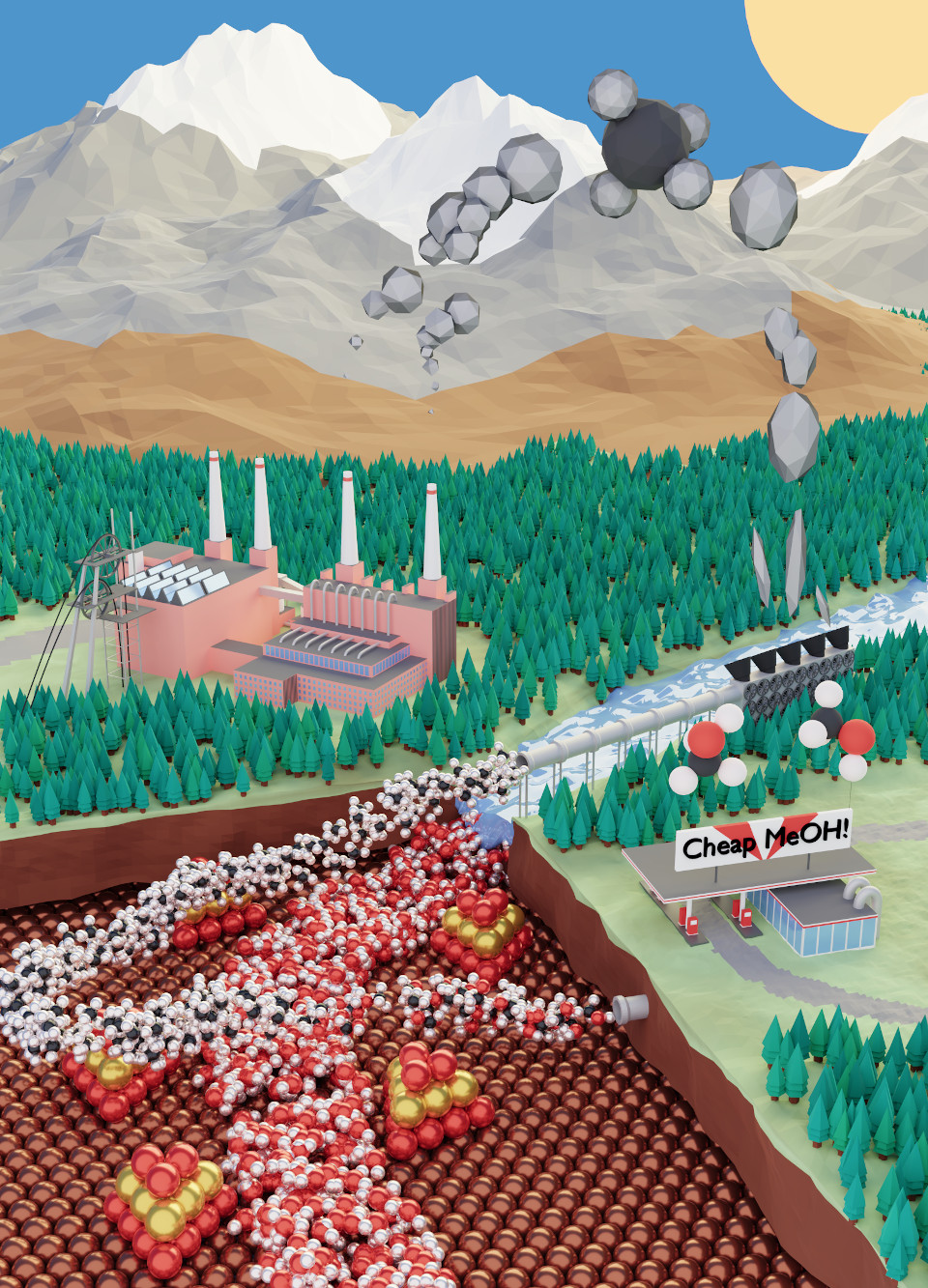Water-promoted interfacial pathways in methane oxidation to methanol on a CeO2-Cu2O catalyst
2020-05-13 | Tomáš Duchoň
doi.org/10.1126/science.aba5005
doi.org/10.1126/science.aba5005
High energy density and ease of handling make hydrocarbon-based liquid fuels the primary driver of the world economy. However, the production of hydrocarbon-based liquid fuels is a challenging endeavor, relying either on extremely long time scales (fossil fuels) or energy-hungry chemical conversion. A prime example of the issue is the relatively simple oxidation of methane to methanol, which, why indeed possible, suffers from low selectivity over a range of known catalysts. In our recent paper published in Science, we investigate the oxidation of methane to methanol over a low-cost ceria-copper catalyst and identify the role water has on the selectivity of the reaction. Specifically, we find that water blocks sites that are active for dehydrogenation of methoxy groups and thus responsible for shifting the products towards carbon monoxide and carbon dioxide. Moreover, water actively participates in the conversion of the methoxy groups to methanol and its displacement into the gas phase. Our findings provide insights into key steps of methanol production, paving the way towards economical production of synthetic hydrocarbon-based fuels.
